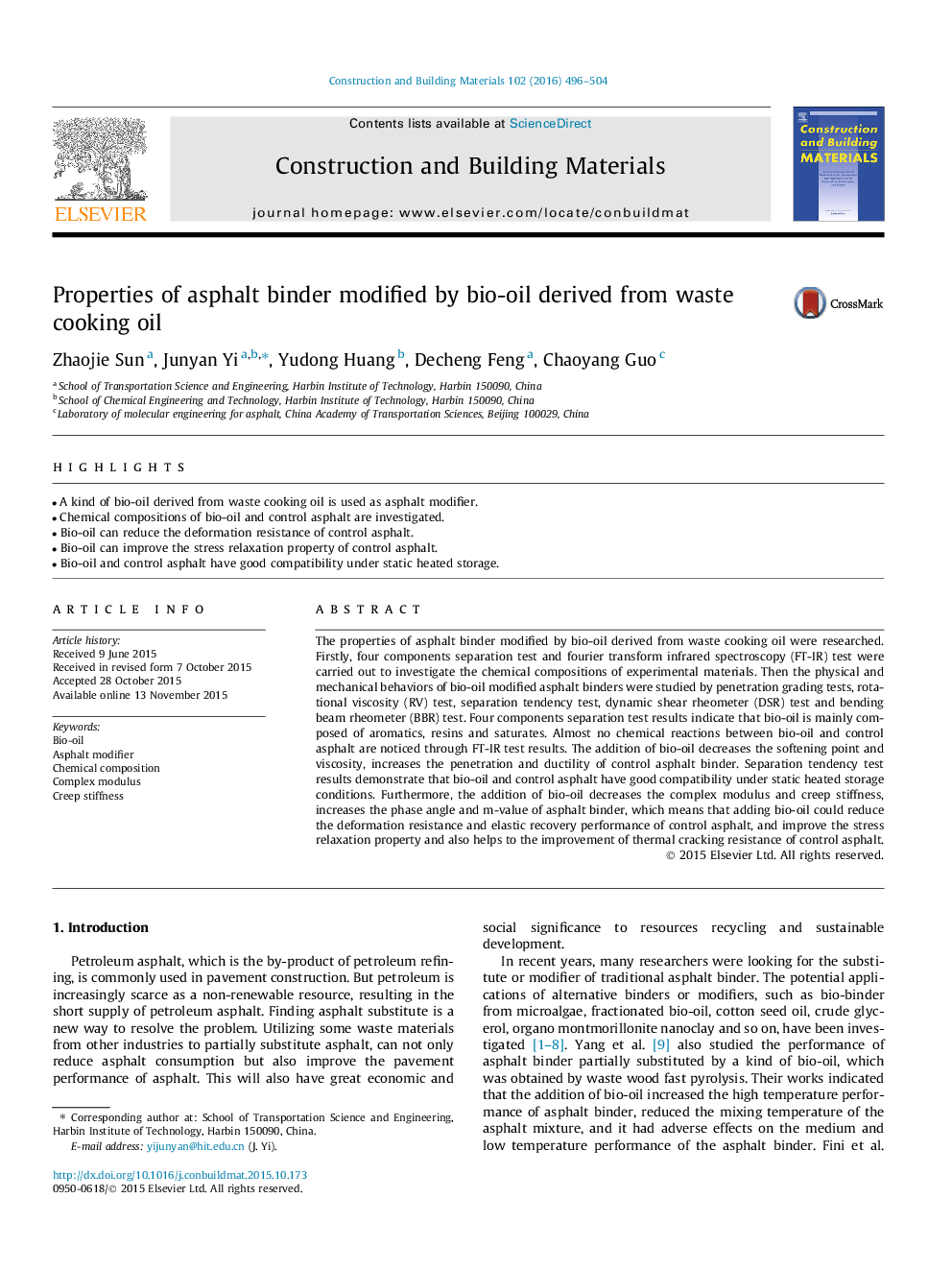| Article ID | Journal | Published Year | Pages | File Type |
|---|---|---|---|---|
| 10285065 | Construction and Building Materials | 2016 | 9 Pages |
Abstract
The properties of asphalt binder modified by bio-oil derived from waste cooking oil were researched. Firstly, four components separation test and fourier transform infrared spectroscopy (FT-IR) test were carried out to investigate the chemical compositions of experimental materials. Then the physical and mechanical behaviors of bio-oil modified asphalt binders were studied by penetration grading tests, rotational viscosity (RV) test, separation tendency test, dynamic shear rheometer (DSR) test and bending beam rheometer (BBR) test. Four components separation test results indicate that bio-oil is mainly composed of aromatics, resins and saturates. Almost no chemical reactions between bio-oil and control asphalt are noticed through FT-IR test results. The addition of bio-oil decreases the softening point and viscosity, increases the penetration and ductility of control asphalt binder. Separation tendency test results demonstrate that bio-oil and control asphalt have good compatibility under static heated storage conditions. Furthermore, the addition of bio-oil decreases the complex modulus and creep stiffness, increases the phase angle and m-value of asphalt binder, which means that adding bio-oil could reduce the deformation resistance and elastic recovery performance of control asphalt, and improve the stress relaxation property and also helps to the improvement of thermal cracking resistance of control asphalt.
Related Topics
Physical Sciences and Engineering
Engineering
Civil and Structural Engineering
Authors
Zhaojie Sun, Junyan Yi, Yudong Huang, Decheng Feng, Chaoyang Guo,
